Are Your Virtual Meetings Accessible for People with Disabilities? Start with This Checklist

The COVID-19 pandemic has changed the way humans interact with one another. With an emphasis on less physical interaction and more social distancing, institutions and organizations are moving their work and meetings online.
People with disabilities form about 15 percent of world population, so it is all the more important these online meetings are made accessible.
The Internet Society Accessibility Special Interest Group (Accessibility SIG) aims to make the Internet and its attendant technologies accessible to the largest audience possible, regardless of disabilities. The digital divide is not just about having the access to digital technology, it could also be about having the access to technology and not being able to use it. Our digital products must be usable by all. Many laws and the Internet Society’s vision – the Internet is for everyone – demand that we provide everyone with an equal experience.
The Accessibility SIG is planning a series of seven webinars discussing this very topic. Our first one was titled When Rhetoric Meets Reality: Digital Accessibility, Persons With Disabilities and COVID-19 and was held on May 28.
The way we design and build can make it hard – and sometimes impossible – for people with disabilities to access Continue reading
MANRS Welcomes Three New CDN and Cloud Participants

The MANRS Content Delivery Network (CDN) and Cloud Program continues to grow in numbers and in strength with three new participants.
Hostmein, Verisign, and Vultr have deepened their commitment to strengthening the security and resilience of the Internet’s global routing system. Participants of this program, which launched in March 2020, implement important practices for mitigating common routing security threats.
Joining means committing to taking five mandatory, and one optional, security-strengthening actions. These include preventing propagation of incorrect routing information and traffic with illegitimate source IP addresses, and facilitating global operational communication and coordination. Read the full list of actions.
“MANRS is more an idea than a framework, and it is a tremendous idea,” said Hostmein CTO Alexander Stamatis. “It raises awareness, it raises new checks to be implemented in the industry, and it keeps us more in line with the primary mission: keeping the network clean, keeping it safe.
“[MANRS] is better because it was built by engineers for engineers. We discovered issues no other initiatives could detect.”
“MANRS is the best implementation that we have done to date. We have found it to be more effective than other specialised IT certifications. And it is better because it Continue reading
Holding Steady: How CDNs, IXPs, and Network Providers Help Keep us Online

Although the COVID-19 pandemic is, unfortunately, far from over, the Internet continues to be resilient, supporting the additional demands that we have placed on it, including the rapid growth in online learning, work videoconferences, e-commerce, streaming video entertainment, and more.
Because the Internet exists as a network of networks, this resilience is largely due to the planning, actions, and cooperation of all of the interconnected participants. These participants include, but are certainly not limited to, network providers, Internet Exchange Points (IXPs), and Content Delivery Networks (CDNs).
Expanding Infrastructure
On the network side, major providers such as Comcast have invested billions of dollars over the last several years in expanding fiber infrastructure and growing network capacity. In contrast, community network provider NYC Mesh is leveraging DIY customer installations to grow its own infrastructure during the pandemic. While there is still much work to be done, these efforts by both large and small network operators as well as similar operators all over the world, are making reliable broadband connectivity more widely available. Infrastructure expansion is vital as the current pandemic has shown that access to reliable Internet is now more important than ever before.
Fast and Reliable Content Delivery
CDN providers are also doing their Continue reading
The Week in Internet News: Balloon-Based Internet Comes to Kenya
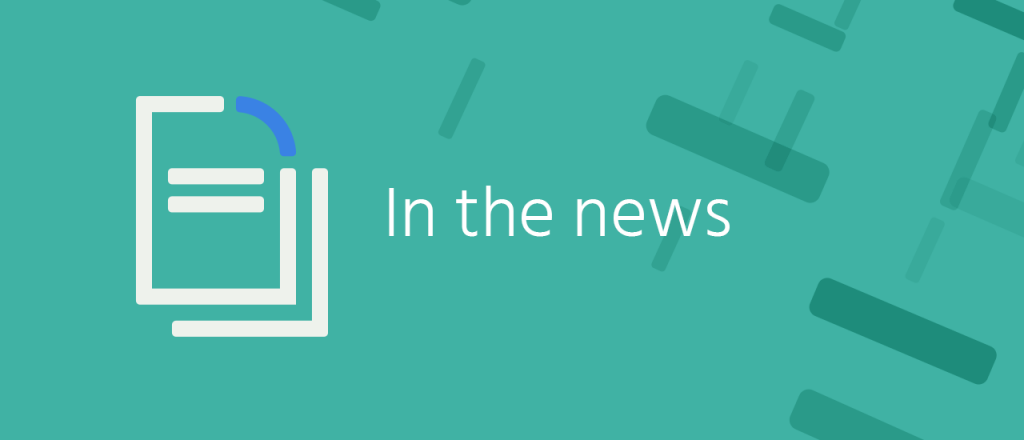
Up, up and away: Google’s Project Loon, focused on providing Internet access with balloons floating in the stratosphere, has begun providing service in Kenya, CNN reports. The project will use about 35 balloons floating 20 kilometers above the ground to provide 4G LTE service covering 50,000 square kilometers in central and western Kenya.
Reach the sky: A broadband cooperative in rural Pennsylvania has built its own wireless network to provider faster Internet service, The Philadelphia Inquirer says. The Rural Broadband Cooperative, made up mostly of retirees, uses a 120-foot, former HAM radio tower that they erected on Stone Mountain. The service, with about 40 paying customers, offers speeds of up to 25 megabits per second.
The great divide: The COVID-19 pandemic has shown the seriousness of the digital divide in Pakistan, The Diplomat says. While the country has moved to online school, many areas lack broadband service, and in some areas, mobile services are shut down by the government because of security concerns. “Students across the country, from the former Federally Administered Tribal Areas to Balochistan, have been protesting against online classes, not only on social media but in front of various press clubs, universities, and on roads. They have Continue reading
Chapter Training Program 2020: The Power of Us!
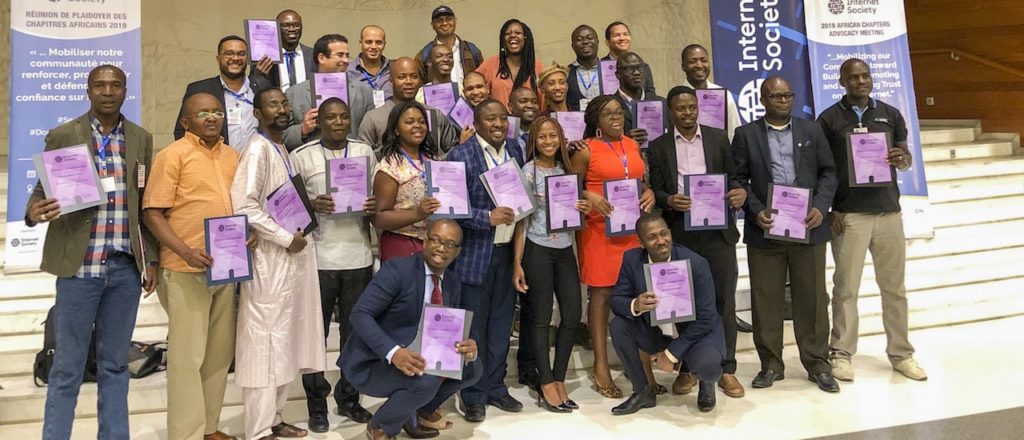
“Vulnerability is the birthplace of innovation, creativity and change.”
—Brené Brown
Three months ago, the Internet Society decided to face a new challenge. We took ourselves out of our comfort zone to move our community to the next level: empowerment through education. We began the Chapter Training Program, born to satisfy the increasing need of our Chapter leaders to engage their members in an impactful and informed way. The purpose was to identify and help form new leaders to work together to create local awareness, as part of our 2020 Action Plan .
This journey was not easy. However, our community embraced vulnerability and we overcame many obstacles, like change and uncertainty. In the end, we succeeded – because together our strength is bigger than our challenges. It’s part of our community’s DNA: having the conviction to build an Internet that enriches people’s lives and enables opportunities to all.We demonstrated that when we work together, we accomplish great things. Challenge becomes just a word… To be brave, first we need to be vulnerable and once we are brave, the sky is the limit!
I want to share the results of our work – and I hope we can Continue reading
IXPs: Keeping Local Infrastructure Resilient during COVID-19

The COVID-19 pandemic has proven how important a strong Internet infrastructure is.
Internet exchange points are a vital part of that. They are key to bringing better, faster, and more affordable Internet to people.
Recently, the Asia Pacific Internet Exchange Association (APIX) and the Internet Society did a comprehensive survey to understand the impact of COVID-19 on IXP operations in the region.
IXPs from Japan, Hong Kong, Taiwan, Thailand, Myanmar, Philippines, Singapore, Vietnam, Indonesia, Malaysia, Nepal, and Australia provided data. Here are some of the key findings.
What is an Internet Exchange Point?
If you want to see your neighbor, taking a route that sends you across town and back again is not the quickest or most efficient way to get there. And yet, in many parts of the world, that is what happens with Internet traffic. IXPs help create shorter, more direct routes for Internet traffic.
Read the Explainer
Changes in Internet Traffic
There was a significant increase in Internet exchange traffic, between 7- 40%. Traffic patterns during the pandemic show that there is either no difference left between peak and off-peak time or the peak time has increased from a few to more hours.
The increase is highest Continue reading
Member News: Chapters Focus on Encryption
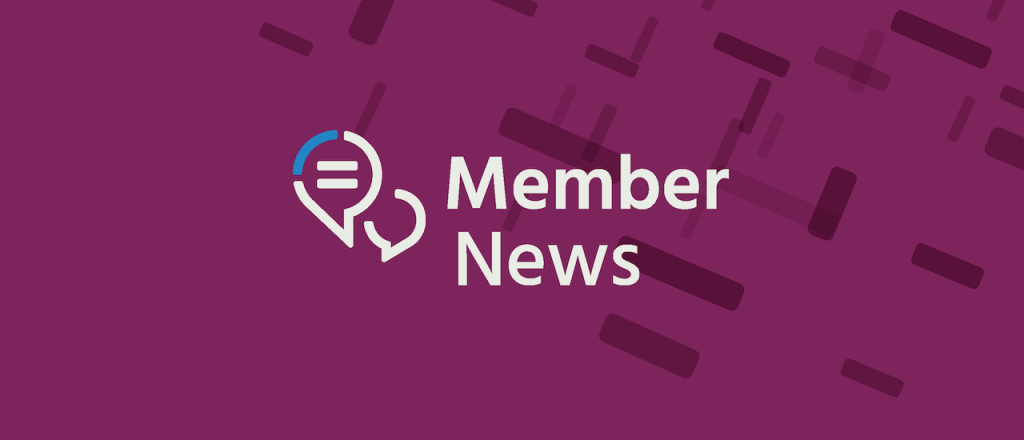
Lock it down: Several Internet Society chapters across the globe have written about the importance of encryption in recent weeks. The Namibia Chapter wrote about the way encryption can improve privacy and fight against the big business of criminal hacking. “Cybercrime is a global business, often run by multinational outfits,” the Chapter wrote. The Hong Kong Chapter, meanwhile, wrote that “encryption matters to all of us.” Internet users need to work together to protect encryption, the Chapter added. “No party can stand alone to persuade governments to stop creating laws or policies that harm encryption and digital security.”
Freedom for all: The Hong Kong Chapter also called for Internet freedoms to continue in the region as the Chinese government pushes for new security laws there. “We are convinced that the freedoms of speech, press and publication guaranteed by the Basic Law are also applicable to the media industry on the Internet,” the chapter wrote. “Internet users have the freedom and right to obtain, share information and express their expressions, and are protected from being censored, blocked or criminalized.”
Expanding the community: The Nepal Chapter recently wrote about community networks in the country, by highlighting the Rural Continue reading
Latest U.S. ‘Anti-Encryption’ Bill Threatens Security of Millions

The Lawful Access to Encrypted Data Act recently introduced to U.S. Congress may be the worse in a recent string of attacks on encryption, our strongest digital security tool online.
While the recently-amended EARN IT Act would leave strong encryption on unstable ground if passed into law, the Lawful Access to Encrypted Data Act (LAEDA) is a direct assault on the tool millions of people rely on for personal and national security each day.
LAEDA would facilitate the death of end-to-end encryption by forcing companies to provide “technical assistance” to access encrypted data upon request by law enforcement investigations.
The problem is the only way for companies to comply would be to build backdoors into their products and services, or not use encryption at all, making everyone more vulnerable to the same crime we are all trying to prevent. To be clear – we’re talking about the same encryption used to keep activities like online banking, working from home, telehealth, and talking with friends secure online.
The Internet Society raised its concerns in an open letter to the co-sponsors of LAEDA in the Senate, which was signed by over 75 global cybersecurity experts, civil society organizations, companies, and Continue reading
The Week in Internet News: Facebook Faces Advertising Boycott
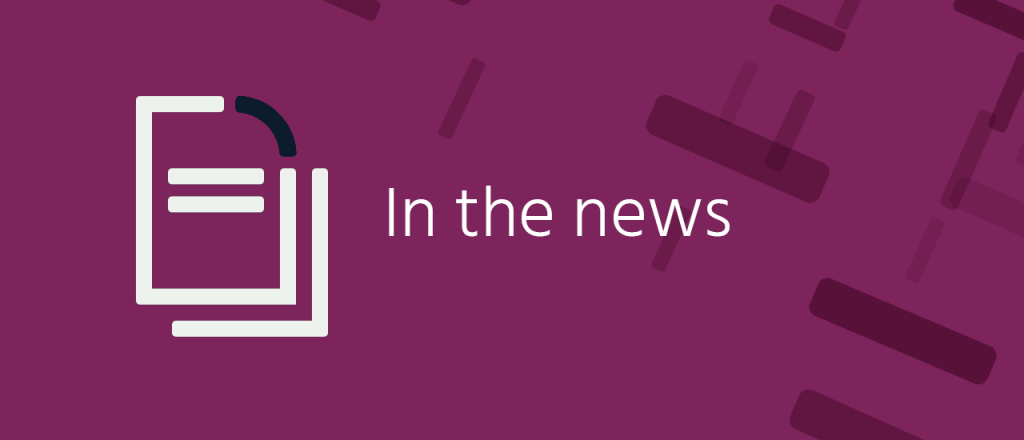
Voting with their dollars: Hundreds of companies have pulled their advertising from Facebook because of the social media giant’s lax policing of misinformation and hate speech, CNN reports. Still, most of the company’s biggest advertisers haven’t joined the boycott, and Facebook CEO Mark Zuckerberg has reportedly predicted “these advertisers will be back on the platform soon enough.”
Driving as a service: German car maker BMW is exploring ways to offer common features, like heated seats and cruise control, in a subscription-based, as-a-service model, The Independent reports. The Next Web called the subscription model “anti-consumer rubbish.” Video game maker Brianna Wu also tweeted her disappointment: “Sorry, but if this catches on, I will never buy another new car. Never.”
Networked threats: The U.S. Federal Communications Commission has designated Chinese networking companies Huawei and ZTE as national security threats, Al Jazeera says. This follows long-term concerns about the companies’ relationship with the Chinese Communist Party and the possibility of surveillance through their equipment. The FCC has proposed that rural telecom carriers be required to replace equipment from the two vendors.
Paying for speed: The Japanese government plans to subsidize local 5G companies as a way to catch up Continue reading
Internet2 Ramps up MANRS Support for U.S. Research and Education Community

The research and education community in the U.S. relies on a critical infrastructure to meet our education and research missions: the global Internet. This has been especially true during the COVID-19 pandemic, when it has enabled the rapid transition from on-campus to at-home learning.
In addition to being intense Internet users, we also operate a significant part of the Internet that’s tuned to meet higher education’s unique needs. The Internet2 network interconnects more than 1,000 individual networks across the U.S., and collectively we coordinate our activities and operations to ensure researchers and educators have the capabilities they need.
The Internet2 community is increasing participation in MANRS because routing security is a growing area of concern for network operators around the globe.
Whether from accidental misconfiguration or malicious hijack, the results are often more than just inconvenient. As academic and business critical functions are hosted or off-prem, the Internet is no longer a nice to have, but a key component of an organization’s IT infrastructure.
Colleges and universities have a long history of being connected to the Internet, and there was a time when connecting to the Internet was nearly “set it and forget it.”
But, today, Continue reading
The Internet “Just Works”: The EARN IT Act Threatens That and More

When the EARN IT Act was introduced in March 2020, technologists, civil society organizations, academics, and even a former FBI General Counsel blasted the bill as a thinly veiled attempt to prevent platforms from keeping users safe with strong encryption. The bill had implications for intermediary liability, of course, but it was clearly a play to take down the strongest digital security tool we have online.
The EARN IT Act is now a monstrous version of its previous self. It would not only weaken the ability of platforms to protect users through encryption, but fundamentally alter how platforms operate, leading to dangerous consequences for users and the global Internet.
While the new version of the bill would prevent the federal government from forcing platforms to weaken encryption to maintain their intermediary liability protection (a foundational aspect of most companies’ business plans), it would essentially allow states to pass their own version of the original EARN IT Act. This would create a chaotic patchwork of state-level laws, threatening user security across the country and creating borders for a networking system that was never meant to recognize them. This bill would not only weaken the ability of platforms to protect users through Continue reading
Internet Society Foundation Announces $1.5 Million in COVID-19 Response Grants

The Internet plays a more important role than ever, serving as a lifeline so that children can continue learning, families and friends can stay connected, and vital public health information can keep circulating. At the Internet Society Foundation, we believe access to the Internet and its solutions can create healthier and safer communities, reduce vulnerabilities, and help build the resilience communities need to navigate the COVID-19 pandemic and emerge better prepared in the future.
That’s why we’re thrilled to announce that we’ve completed the selection process for our Emergency Response: COVID-19 grants, awarding USD$1.5 million in funding to four innovative projects that are using the Internet to help communities respond and adapt to the challenges created by the current pandemic.
The funding will support the following efforts around the globe:
- Expanding an online platform which connects and trains caregivers across Asia
- Extending the reach of a COVID-19 training program to support 10,000 health workers in five African countries
- Enabling a disaster response team to expand Internet connectivity for 24 critical primary health and coordination facilities across eight countries
- Expanding the scope of an innovative technology platform that supports fact-checkers in Latin America
Established Continue reading
Open Standards Everywhere: How the Kolkata Chapter Got a Perfect Score

In early May 2020, the Open Standards Everywhere (OSE) project held a series of virtual training sessions for Internet Society Chapters. Over 70 Chapter representatives from around the world learned, in English, French, or Spanish, how to improve the overall security and availability of their Chapter’s websites and web servers by enabling IPv6, HTTP/2, TLS, and DNSSEC.
To assess everyone’s progress we tested each Chapter’s website before and after the training sessions using internet.nl and http2.pro. As a result of the OSE training sessions, many Chapters were able to significantly increase their website’s compliance. But one Chapter in particular, ISOC Kolkata, was able to take its website from 32% compliance to a whopping 100%. We caught up with ISOC Kolkata member Rittika Ratawa, who was nominated by the Chapter to attend the training, to find out more.
The Internet Society: What changes did you make to isockolkata.in as a direct result of the OSE virtual training session?
Rittika: After the training session, the Chapter made several changes. Firstly, we changed our DNS service provider as the one we had been using did not offer DNSSEC services or IPv6. Then we enabled DNSSEC by providing Continue reading
Beyond the Usual: Challenges, Opportunities, and Insights in Asia-Pacific
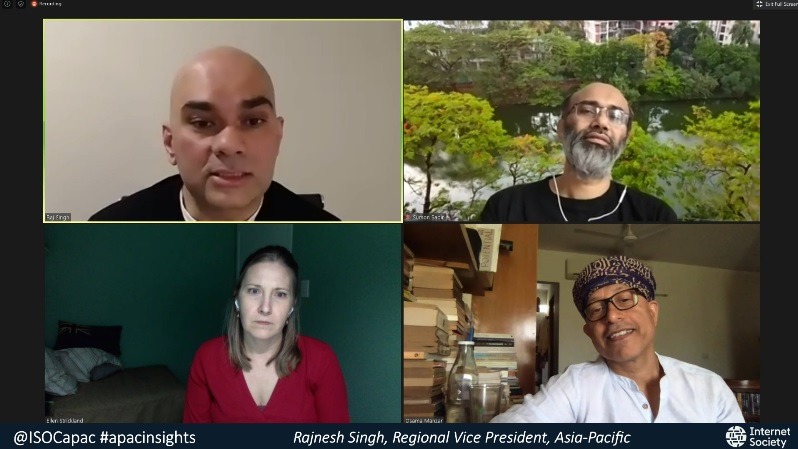
Last month, we held our inaugural APAC Insights. The idea behind this is to bring together thought leaders and subject matter experts to discuss issues related to the Internet and its use in the Asia-Pacific.
However, the intention is not to make this another run-of-the-mill talk shop – rather, we want this to be a forum that shares and contrasts experiences, explores challenges and opportunities in a pragmatic way, and provides attendees insights into the issues beyond the usual.
With the global pandemic causing major disruptions to our professional and personal lives, the topic for the first APAC Insights zoomed in on the role the Internet has played in helping communities deal with the coronavirus pandemic.
Speakers from across the region – representing the world’s largest Internet shutdown to the world’s strictest – discussed initiatives that worked well and those that didn’t work so well, and the critical role of the Internet in rolling out these initiatives. During a Q&A segment, attendees had the opportunity to ask the speakers questions.
One of the key points made was that even though the Asia-Pacific is regarded as a mobile-first region, the shutdowns demonstrated (in some countries in particular) how fragile connectivity can Continue reading
The Week in Internet News: Google to Pay Some News Publishers
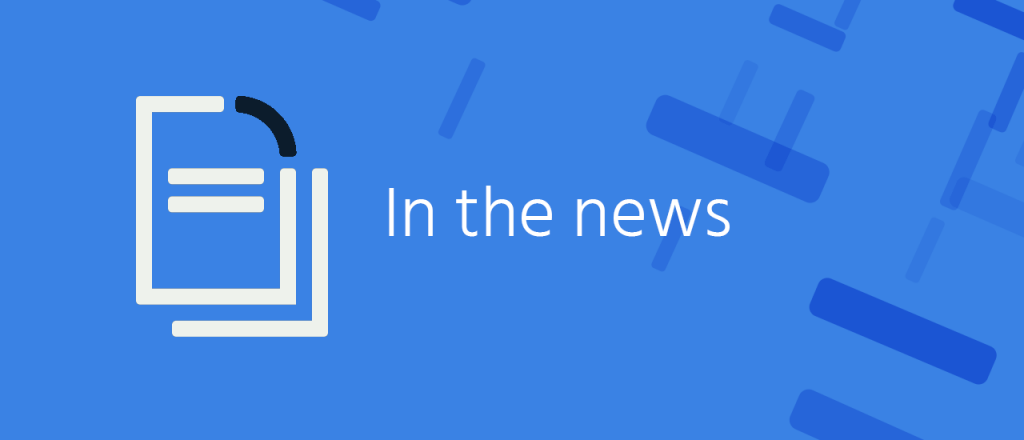
News isn’t free: Google has announced it will pay some news publishers in a “new news experience” it is rolling out later this year, TechCrunch reports. News outlets in Germany, Australia, and Brazil are among the first group of publishers that have signed on. The goal is to “help participating publishers monetize their content through an enhanced storytelling experience that lets people go deeper into more complex stories, stay informed and be exposed to a world of different issues and interests,” Google says.
AI in HR: Japanese companies are turning to artificial intelligence to help hire employees, Japan Times says. SoftBank says it has cut labor time by 75 percent by using AI to sift through tens of thousands of resumes. Still, some companies are concerned about AI giving them inappropriate or discriminatory decisions.
Attacking encryption: Three U.S. Senators have introduced legislation that would require tech companies to help law enforcement agencies defeat end-to-end encryption, PC Mag reports. The Republican bill would allow courts to order companies to bypass encryption when police agencies request it.
More broadband for all: In the meantime, a group of U.S. representatives has introduced legislation to spend $100 billion to deploy fiber-based broadband Continue reading
Closing the Digital Divide in Nepal

COVID-19 has pushed the world into a digital revolution and closing Nepal’s digital divide has never been more important.
Nepal is a landlocked least developed country, and according to the International Telecommunication Union, less than 20% of its population are online compared to 87% in developed countries.
While connecting some of Nepal’s most remote places isn’t easy, two community network projects are case studies of how it can be done. They are Wireless for Communities (W4C) Nepal and Rural Communities Access to Information Society (RUCCESS), both supported by the Internet Society.
Community networks are networks built, managed and used by local communities. They are often established in rural and remote areas that are not commercially viable for Internet service providers (ISPs). The networks are often built using low-cost WiFi equipment and unlicensed spectrum bands to interconnect members of the community and improve their lives.
W4C Nepal
W4C Nepal was launched in the aftermath of the Gorkha Earthquake in April 2015, in partnership with the Nepal Wireless Networking Project, an initiative of Mahabir Pun, an Internet Hall of Fame recipient and winner of the Ramon Magsaysay Award.
Using wireless networks, all powered by solar panels as the villages are Continue reading
Eighty for Africa: Kenya and Nigeria’s IXP Success

Ten years ago the peering community came up with a vision: We wanted 80 percent of Internet traffic to be localized by 2020. I must admit, over the last decade there were times I wondered if it was possible.
But Kenya and Nigeria have just proven that it is – all thanks to the help of Internet exchange points (IXPs). A new report, Anchoring the African Internet Ecosystem: Lessons from Kenya and Nigeria’s Internet Exchange Points Growth is a case study on how they did it.
What Changed in Kenya and Nigeria
In just eight years a dedicated community helped Kenya and Nigeria to boost the levels of Internet traffic that is locally exchanged from 30% to 70%.
That happened because of a vibrant community of people united around a common cause: bringing faster, cheaper, and better Internet to their neighbours. They did this by focusing on their local Internet ecosystem that is dependent on the IXP.
Building an IXP takes humans and tech. We often say it takes 80% human engineering and 20% network engineering. It certainly is no easy task. Building a strong local Internet community facilitates this collaboration and results in neutral, even, and good local governance Continue reading
Open Call To The Next Generation of Internet Leaders – Apply for the IGF Youth Ambassadors Program
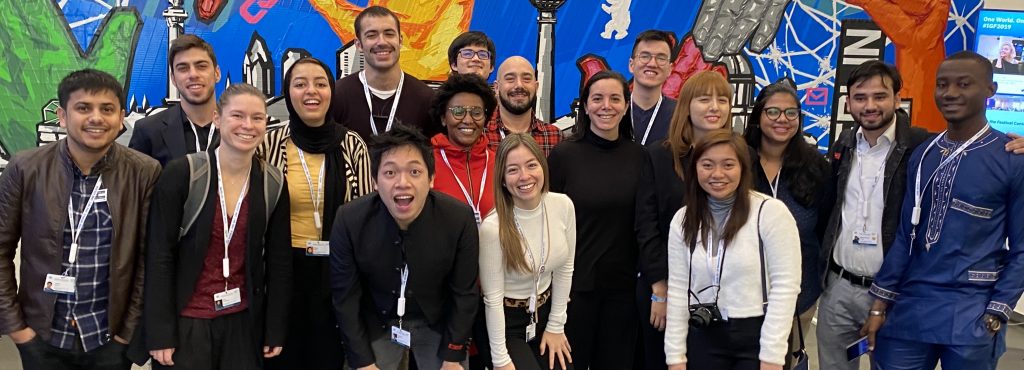
We are living in unprecedented times. COVID-19 has disrupted our world and it’s a crucial time for the Internet. We are facing issues related to misinformation, online education and connectivity. Challenges have been posed to encryption. Debates around the trade-off between privacy and contact tracing apps take place around the globe.
The acceleration of digital transformation worldwide has created immense opportunities and at the same time, uncertainty and challenges. Under these circumstances, youth must be represented in these discussions.
Young people know the benefits of connection, sharing and openness. Young engineers and programmers create new tools for the Internet every day, and many proposals about governance of new technologies come from interested people below the age of 30.
We grew up in cyberspace, and it has become an intrinsic part of many of our lives. We care for it, we value its principles, invariants and characteristics. Most of all, we understand how important the Internet is and how much of a force for good (or for evil) it can be.
The voice of youth matters and the Internet Society plays a significant role to empower the next generation of Internet leaders and to provide them with the freedom to voice Continue reading
The Week in Internet News: U.S. DOJ Wants to Hold Website Liable for User Comments
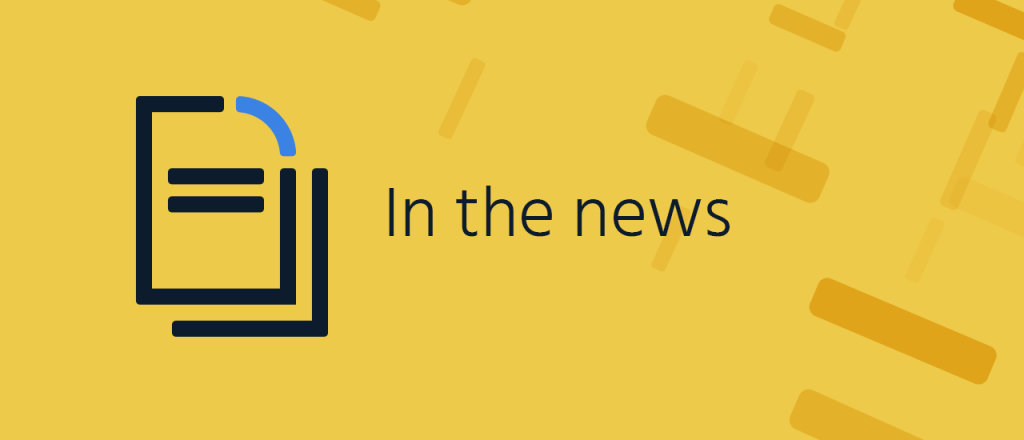
Legal landmines: The U.S. Department of Justice has proposed ending a 24-year-old provision that protections websites and social media outlets from lawsuits for comments and other content posted by users, the Washington Post reports. While some Republicans have complained about social media sites allegedly burying conservative voices, the proposal would actually force sites into heavy moderation as a way to avoid lawsuits. The DOJ proposal would also end legal protections for tech companies that fail to allow law enforcement access to encrypted communications.
Taxing the Internet: The European Union is considering a digital goods tax, but it may have to do so without an agreement from the U.S. government, Al Jazeera reports. The U.S. government has announced it is withdrawing from negotiations with European countries over new international tax rules on digital goods. Nearly 140 countries have been involved in the negotiations.
Internet in space: SpaceX is opening up its Starlink low-earth orbit Internet service to beta testers, ZDNet says. SpaceX now has 540 satellites deployed, allowing for “minor” coverage. The company plans to eventually launch as many as 30,000 Starlink satellites.
The café society: Operators of Internet cafés and gaming centers in Thailand are pushing for Continue reading
What Does a Post-COVID World Look Like in Small Island Developing States?

This blog post was first published by DiploFoundation.
“We need to ensure we digitalize all of our business processes as to enable the effective digital transformation of our governments, businesses, and educational institutions so that the disruptive solutions brought by the global pandemic, including remote work, digital health, e-learning, and fintech, are collectively recognized as a pivot point in our history.”
There… I’ve done it… I’ve met the challenge of how many currently fashionable buzzwords and jargon I can stuff into a single sentence.
Everything we’ve been reading about dealing with the issues the global economy will face in the post-COVID-19 world tends to sound something like what I’ve written above. I can’t promise you that I will not touch upon these topics and mention these buzzwords again, but I do hope I can bring a certain degree of pragmatism to the conversation, especially given that I hail from Trinidad and Tobago, a twin-island country in the Caribbean, categorized as a small island developing state (SIDS) along with approximately 50 odd others scattered across our various oceans.
SIDS economies are generally characterized by their dependence on earning revenue from the exportation of either raw materials or partially-finished goods extracted Continue reading